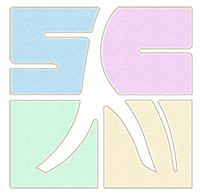
China is a close neighbor of Japan. In modern times, China and Japan not only maintained close contacts, but also had profound contradictions. There have been conflicts and wars. With a strong interest in China from generations to generations, Japan has seen numerous biographies of Chinese subjects representatives from all walks of life. This volume analyzes the Chinese biographies in different periods published in Japan, and puts priority on exploring Japanese biographers’ observation and cognition of various representatives from Chinese society. The unique perspectives of Japanese biographers are attributed to the characteristics of Japanese culture, the needs of Japanese society, the evolvement of international situation and the influence of Sino-Japanese relations.
Based on the collection of 1,200 biographies of about 240 Chinese subjects published in Japanese over the past 120 years, this volume focuses on 80 typical subjects with an in-depth analysis and a close study. The research includes the introduction, three chapters and one appendix, with the whole project is further divided into 33 sections.
By reviewing the history of Sino-Japanese communications and Chinese immigration to Japan, the Introduction presents the general situation and the main characteristics of Japanese biographies and Chinese biographies published in Japan.
Chapter I reviews the Chinese biographies published in Japan from the Sino-Japanese war to the victory of the Anti-Japaness War and to the end of the Second World War (1894-1945). The biographies during this period are about Chinese rulers such as Empress Dowager Cixi, Li Hongzhang, Yuan Shikai, Chiang kai-shek and Wang Jingwei; the reformers such as Yan Fu, Kang Youwei and Liang Qichao; the revolutionaries such as Sun Yat-sen and Qiu Jin; the warlords such as Zhang Zuolin and Feng Yuxiang and writers such as Lu Xun, Yu Dafu and Xiao Hong.
Chapter II explores biographies of Chinese subjects published in Japan between the end of the Second World War and the beginning of China's reform and opening up (1945-1978), focusing on the biographies of some leaders of the Communist Party of China such as Mao Zedong, Zhou Enlai, Deng Xiaoping and Lin Biao, as well as celebrities in the cultural and artistic circles such as Tao Xingzhi, Qi Baishi, Xu Beihong, Guo Moruo, Mao Dun and Ding Ling.
Chapter III addresses lives of Chinese biographees published in Japan since 1978 in the field of politics and diplomacy, finance and industry, arts and literary circles in China’s mainland and Taiwan. The biographies focus on such famous figures as Xi Jinping, Song Meiling, Zhang Xueliang, Teresa Teng, Liu Xiaoqing and Lee Teng-hui, as well as some Chinese students, who published important autobiographies in Japanese.
The appendix to this volume is the commentary on the biographies of Japan's orphans left behind in China after the end of the War of Resistance against Japanese Agression.